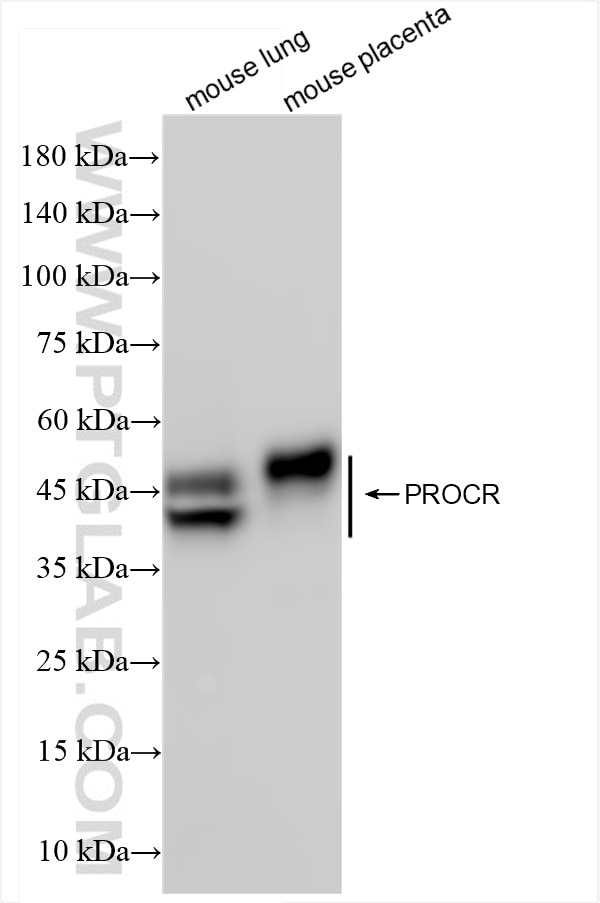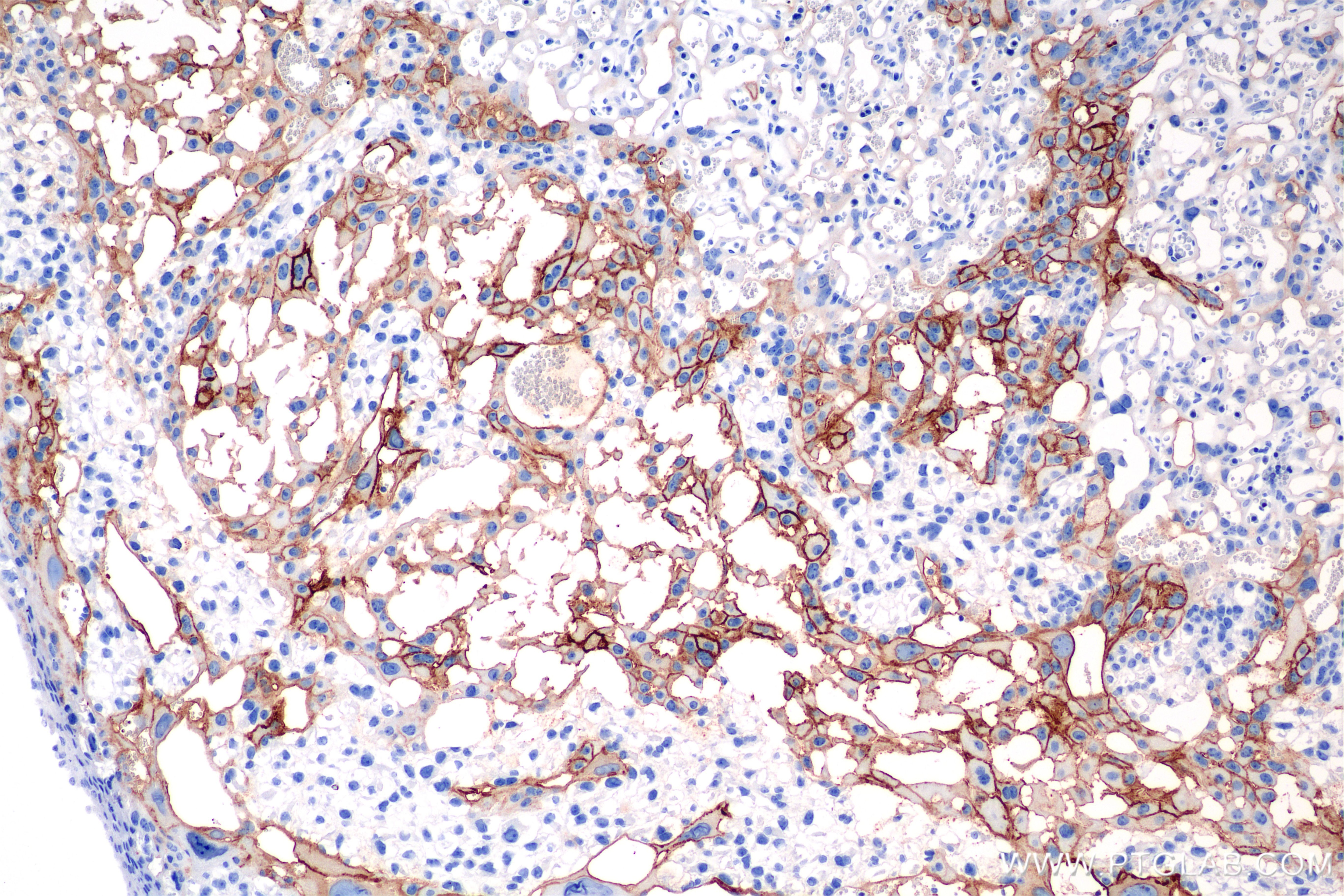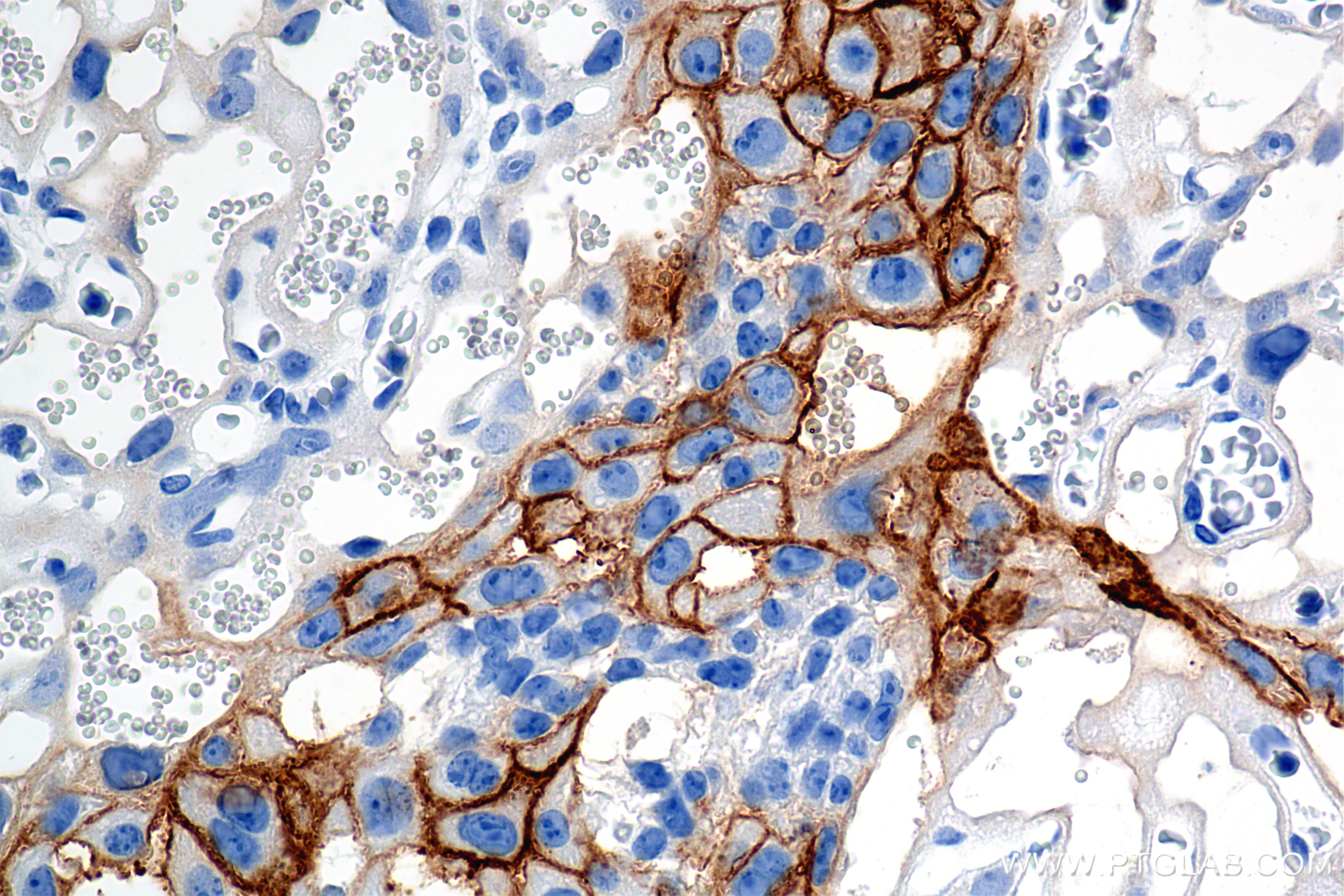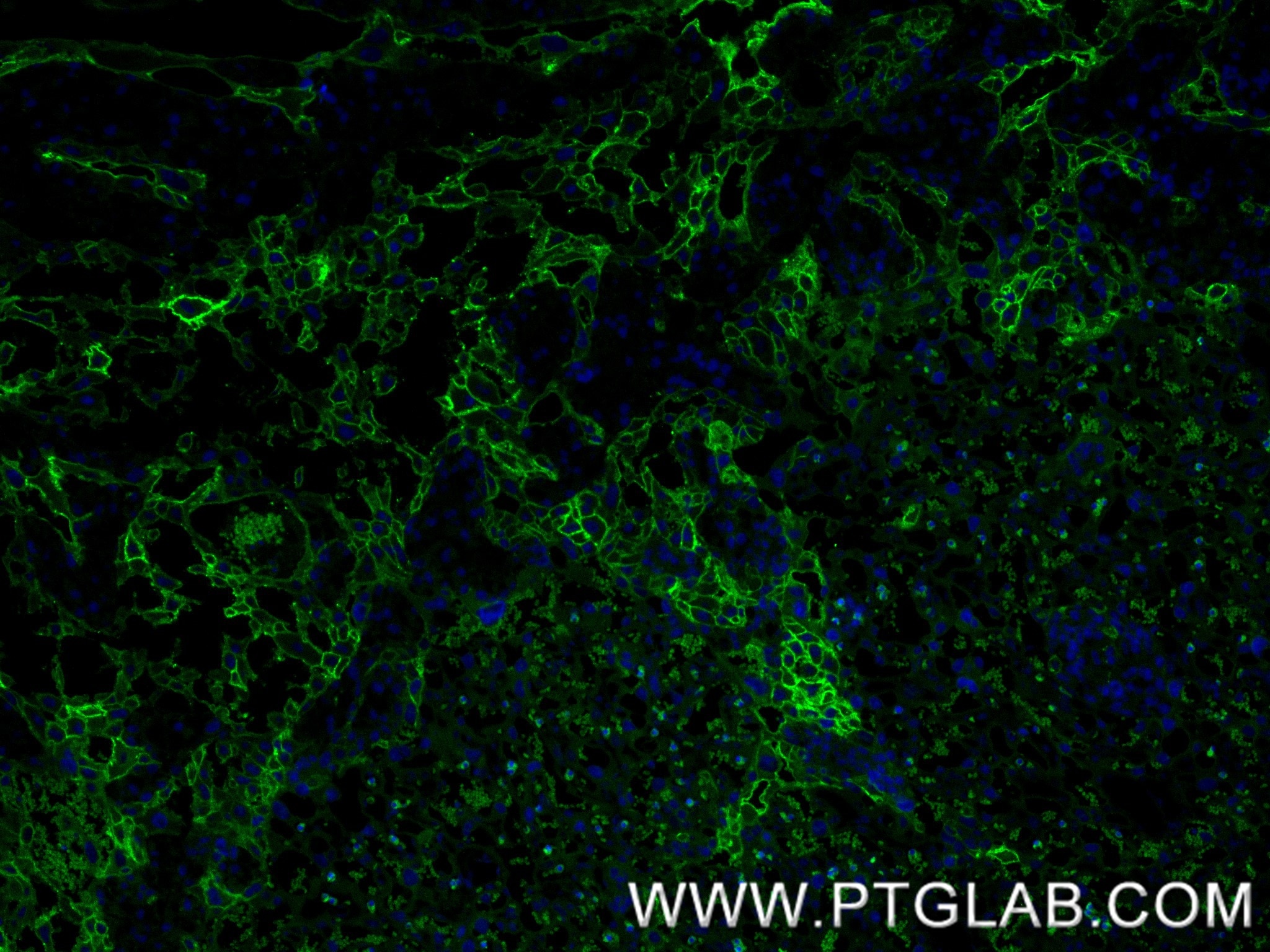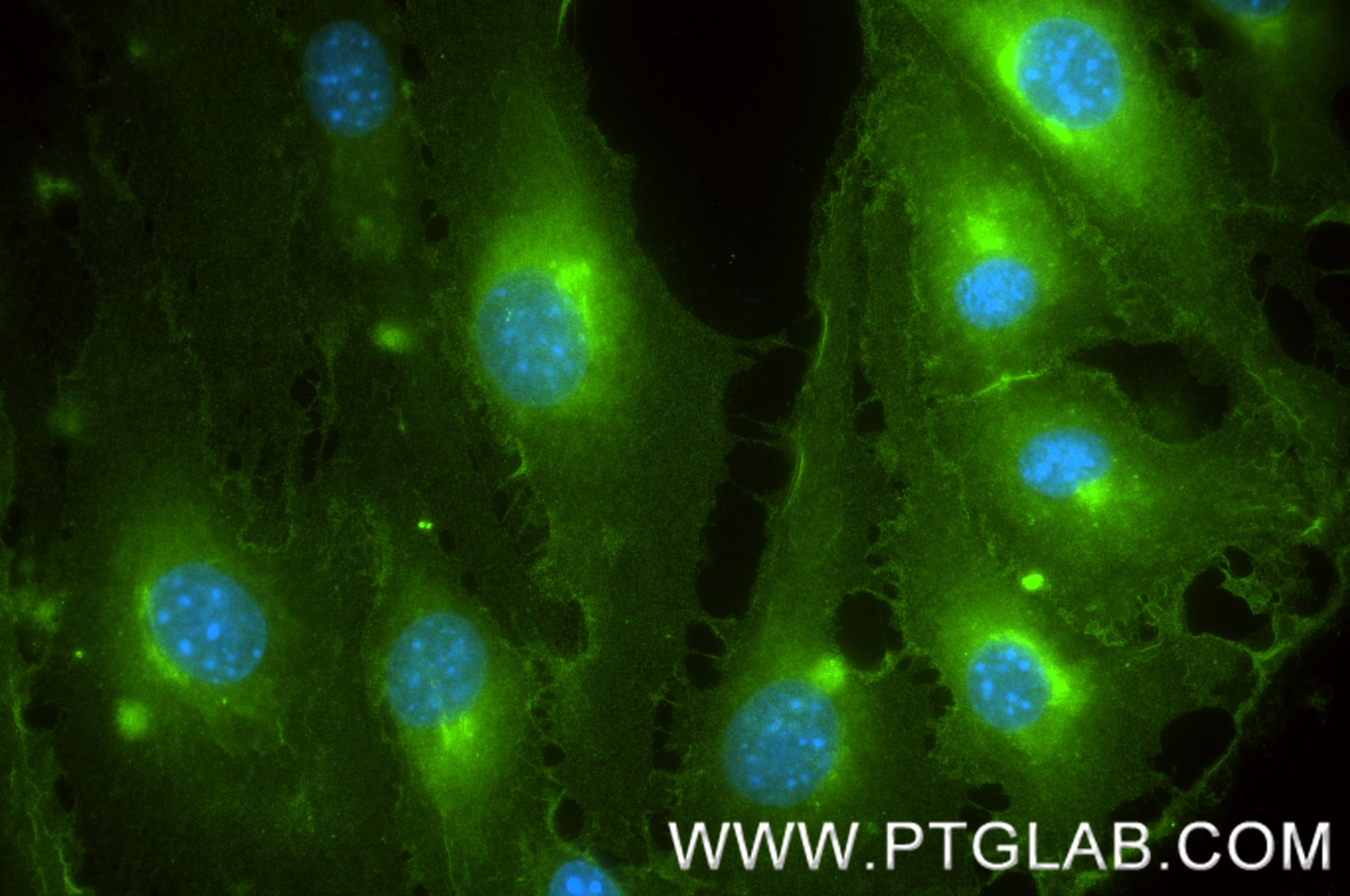Validation Data Gallery
Tested Applications
| Positive WB detected in | mouse lung tissue, mouse placenta tissue |
| Positive IHC detected in | mouse placenta tissue Note: suggested antigen retrieval with TE buffer pH 9.0; (*) Alternatively, antigen retrieval may be performed with citrate buffer pH 6.0 |
| Positive IF-P detected in | mouse placenta tissue |
| Positive IF/ICC detected in | bEnd.3 cells |
Recommended dilution
| Application | Dilution |
|---|---|
| Western Blot (WB) | WB : 1:5000-1:50000 |
| Immunohistochemistry (IHC) | IHC : 1:500-1:2000 |
| Immunofluorescence (IF)-P | IF-P : 1:200-1:800 |
| Immunofluorescence (IF)/ICC | IF/ICC : 1:50-1:500 |
| It is recommended that this reagent should be titrated in each testing system to obtain optimal results. | |
| Sample-dependent, Check data in validation data gallery. | |
Product Information
84494-2-RR targets EPCR/CD201 in WB, IHC, IF/ICC, IF-P, ELISA applications and shows reactivity with mouse samples.
| Tested Reactivity | mouse |
| Host / Isotype | Rabbit / IgG |
| Class | Recombinant |
| Type | Antibody |
| Immunogen |
CatNo: Eg1517 Product name: Recombinant Mouse EPCR/CD201 protein (rFc Tag)(HPLC verified) Source: mammalian cells-derived, pHZ-KIsec-C-rFc Tag: C-rFc Domain: 18-214 aa of NM_011171.2 Sequence: LCNSDGSQSLHMLQISYFQDNHHVRHQGNASLGKLLTHTLEGPSQNVTILQLQPWQDPESWERTESGLQIYLTQFESLVKLVYRERKENVFFPLTVSCSLGCELPEEEEEGSEPHVFFDVAVNGSAFVSFRPKTAVWVSGSQEPSKAANFTLKQLNAYNRTRYELQEFLQDTCVEFLENHITTQNMKGSQTGRSYTS 相同性解析による交差性が予測される生物種 |
| Full Name | protein C receptor, endothelial |
| Calculated molecular weight | 27kDa |
| Observed molecular weight | 40-50 kDa |
| GenBank accession number | NM_011171.2 |
| Gene Symbol | PROCR |
| Gene ID (NCBI) | 19124 |
| RRID | AB_3672007 |
| Conjugate | Unconjugated |
| Form | |
| Form | Liquid |
| Purification Method | Protein A purification |
| UNIPROT ID | Q64695 |
| Storage Buffer | PBS with 0.02% sodium azide and 50% glycerol{{ptg:BufferTemp}}7.3 |
| Storage Conditions | Store at -20°C. Stable for one year after shipment. Aliquoting is unnecessary for -20oC storage. |
Background Information
Protein C receptor (PROCR), also known as activated protein C receptor (APC receptor), EPCR, or CD201, is a transmembrane glycoprotein. EPCR promotes the activation of protein C, which has anticoagulant and cytoprotective effects. EPCR facilitates the activation of protein C by the thrombin-thrombomodulin complex but also facilitates APC-mediated cytoprotective impact on cells that involve the activation of protease-activated receptors (PAR) 1 and 3(PMID: 27207424).
Protocols
| Product Specific Protocols | |
|---|---|
| IF protocol for EPCR/CD201 antibody 84494-2-RR | Download protocol |
| WB protocol for EPCR/CD201 antibody 84494-2-RR | Download protocol |
| Standard Protocols | |
|---|---|
| Click here to view our Standard Protocols |

